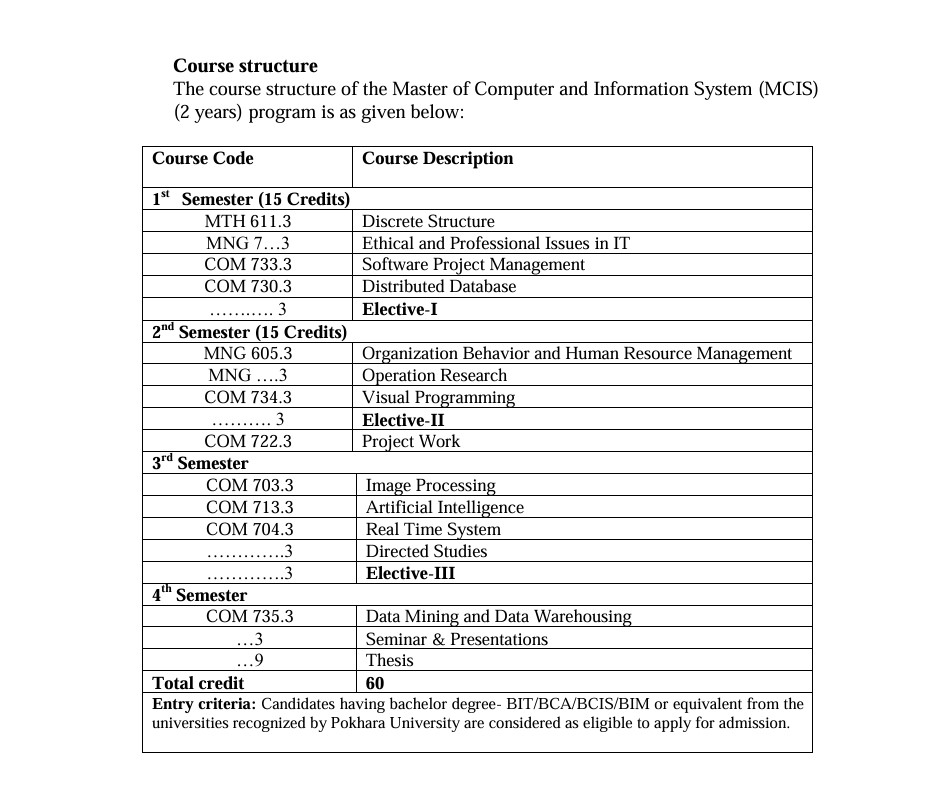
Computer has been the field of interest for many individuals who are not computer engineers. The wide application of computers has further encouraged the individuals to undertake computer education. The introduction of new courses such as BCIS/BIT/BIM/BCA and the like has put further pressure and challenge before the education institutions to design the courses that helps them pursuing higher study in the field of computer and information. This course will help the students in becoming IT professionals, managers and teachers.
Key Learning Outcomes
-
Gain theoretical and practical understanding of the storage and manipulation of data and information in and across organizations
-
Acquire leadership capabilities essential for the development of large-scale information systems
-
Use e cient information systems to enhance business processes and decision-making processes associated with large IT projects, related environments, and associated businesses
-
Design, develop, and maintain Intelligent Systems through the acquisition of contemporary knowledge pertaining to recent technological advancements
Software Development: Senior Software engineers for overseeing the overall software production process using high-end development technology
Network Administration: Senior Network Managers for deploying and maintaining large secure networks
Database Designing: Database designers for envisioning and implementing large-scale database solutions from both the Centralized and Distributed perspective
BIT/BCA/BCIS/BIM or equivalent (with minimum 2.0 CGPA or Second Division) from the Universities recognized by Pokhara University.
Career Prospects
Graduates of the MCIS program get a warm welcome from modern IT-driven society where knowledge acquisition for e ective decision- making through automation plays a key role.
MCIS largely builds up the graduates’ knowledge of the application of information and communications technology in business environments vital for improving the overall e ciency of their organizations.
MCIS graduates can pursue their career in diversi ed domains as Database Managers, Software Architects or Engineers, Network Specialists, and Information Experts
Some specialized domains
Information System Management: Information System Managers in various governmental & private institutions and NGOs & INGOs for developing and maintaining large-scale Information Systems
Knowledge Engineering: Information System Experts or O cers for providing crucial input to top-level decision-making bodies through knowledge mining in large-scale business organizations
Web and Internet Programming: Web engineers for envisioning and developing intelligent software systems using sophisticated CASE tools and technologies like the Semantic Web or Data Mining.
Course Strucuture

